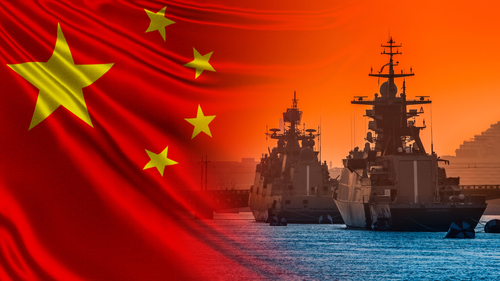At the 79th United Nations General Assembly, China solidified its push for a multipolar world order, signaling a major shift from the U.S.-dominated global landscape. China’s Foreign Minister, Wang Yi, emphasized that the world is undergoing "unprecedented transformation" and highlighted the need for a more inclusive international system, one that doesn't prioritize any single nation's interests over others.
China’s vision of a multipolar world aims to reduce the dominance of Western powers, particularly the U.S., and increase the influence of emerging nations like those in the Global South. Wang Yi argued that U.S. unilateralism has created instability in global governance, contributing to conflicts in regions such as Ukraine and the Middle East. Instead, China is proposing a more equal partnership among nations, advocating for true multilateralism and cooperation through existing international frameworks like the United Nations.
In a question on democracy, Sen. Cory Booker quips about "countries like China & Russia" that "do not share the world order’s rules, clearly."
Minutes later, Booker joined others in applauding Antony Blinken for calling the International Criminal Court actions "wrongheaded." pic.twitter.com/v75vzBI3PN— Prem Thakker (@prem_thakker) May 21, 2024
This message resonated with a number of countries at the summit, particularly from the Global South. Nations like Brazil have been supportive of China's approach, with Brazilian President Luiz Inácio Lula da Silva expressing a desire to collaborate with Beijing to balance global power dynamics. Even some U.S. allies, including France and the United Kingdom, have shown interest in China's proposal, as they navigate the growing complexity of their reliance on the United States, particularly in areas like energy security and military cooperation.
Critics, however, view China’s advocacy for multipolarity as a strategic move to further its own geopolitical influence. China has often been accused of exploiting multilateral platforms like the UN to advance its interests, particularly in regions like Africa and Latin America. Beijing’s close ties with Moscow have also raised eyebrows, especially given the ongoing conflict in Ukraine, where China has been seen as tacitly supporting Russia despite officially calling for peace.
Wow, quite a speech by Viktor Orbán pic.twitter.com/YuAplOmsRs
"Now we are living in a multipolar world order, and one of the pillars of this new world order is the People’s Republic of China. The country that is now setting the course of the world economy and world politics.…
— Arnaud Bertrand (@RnaudBertrand) May 10, 2024
The push for a multipolar order also coincides with China’s broader economic and military ambitions. China's Belt and Road Initiative (BRI), a massive infrastructure and development project, has significantly expanded Beijing’s global reach, especially in developing nations. Alongside the BRI, China is strengthening military ties with Russia and other nations through organizations like the Shanghai Cooperation Organization (SCO), further positioning itself as a counterweight to Western alliances like NATO.
China’s multipolar rhetoric has not gone unnoticed in Europe, where the war in Ukraine has reshaped energy policies and deepened reliance on the U.S. for liquefied natural gas (LNG) supplies. European leaders, while still tied to transatlantic partnerships, are increasingly seeking greater autonomy in their foreign policy strategies, a shift that China is keen to exploit. French President Emmanuel Macron, for example, has voiced his belief that Europe must not become a mere "vassal" of the United States, a sentiment that echoes China's calls for a more balanced global system.
Despite China’s diplomatic efforts, skepticism remains about Beijing’s ability to act as a neutral arbiter in international conflicts. The United States and its allies have pointed to China’s handling of the South China Sea disputes and its human rights record as evidence that Beijing is more interested in expanding its own power than in creating a truly equitable global system. Moreover, China’s refusal to condemn Russia’s invasion of Ukraine has further complicated its position as a credible champion of peace.
Nevertheless, China’s influence is undeniably growing, particularly among nations frustrated with the current global order. As geopolitical tensions rise, especially between the U.S. and China, the latter’s calls for a multipolar world are likely to remain central to its foreign policy strategy, with potentially significant implications for the future of international relations.




